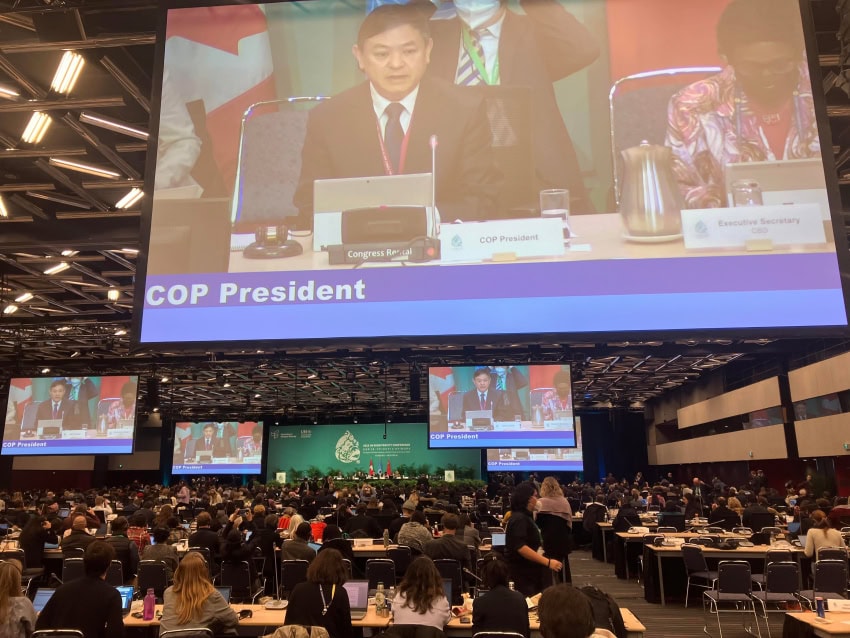MONTREAL – More than 190 countries have signed a landmark agreement to protect nature at the United Nations’ biodiversity conference, COP15, in Canada.
The pact, called “Kunming-Montreal Agreement”, include nearly two dozen goals, including tackling the biodiversity crisis. It also include a pledge to protect 30% of land and oceans by 2030 as only 17% of land and 10% of oceans are currently considered protected.
Under the agreement, financial support will be extended to the developing countries to prevent biodiversity loss. The new agreement has been compared to the Paris Agreement’s commitment to keeping global warming below 1.5C.
The countries have vowed to take measures to protect the species, which are near to extinction due to human activities.
The development comes on the heels of massive warnings from the scientists that irresponsible human activities are leading to Earth’s sixth mass extinction event.
The Kunming-Montreal agreement does not make the countries legally bound but they will be required to show their performance for protection of biodiversity.
https://twitter.com/UNBiodiversity/status/1604769100139757573
In a statement issued at the COP15 Closing Plenary, UNEP Executive Director Inger Andersen urged that success of the framework will be measured by rapid and consistent progress in implementing the agreement.
“I welcome the adoption of the Kunming-Montreal Global Biodiversity Framework today. The adoption of this Framework and the associated package of ambitious targets, goals and financing represents but a first step in resetting our relationship with the natural world,” said Andersen.
“Success will be measured by our rapid and consistent progress in implementing, what we have agreed to. The entire United Nations System is geared to support its implementation so that we can truly make peace with nature.”
A spotlight on mountains in the Post-2020 Global Biodiversity Framework














